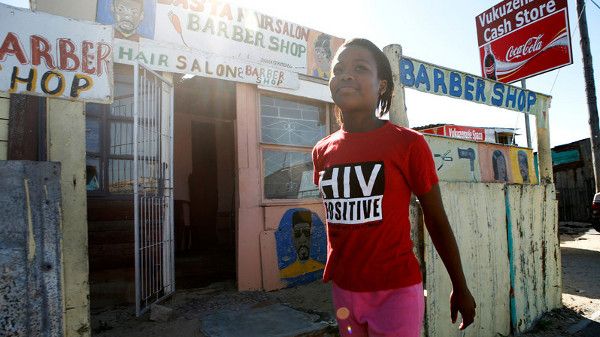
Dylan Mohan Gray's debut Fire In The Blood - which premiered at Sheffield Doc/Fest last year and received critical acclaim at Sundance - is a stinging indictment of the Western world's reaction to the HIV/AIDS crisis in Africa and a persuasive argument against the patent laws that are being used by big pharmaceutical companies to protect their profits regardless of the cost to human life. The film is out in selected cinemas from February 22 (venue details available from the official site) and we caught up with Dylan to talk about the film earlier this week.
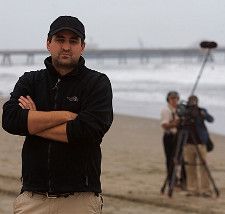
AW: The film is likely to leave audiences feeling quite angry? Were you hoping for that?
DMG: There are different levels to get quite angry about this whole story - that was the reaction I had when I first started learning about it. First of all, one is angry because it's so inhumane but one is also angry because I felt betrayed that I didn't know more about it - that no one had really banged the drum loud enough, somehow and this whole thing had happened. You had a vague knowledge of the pandemic in Africa, but once you start to put the pieces together and you realise so much of it was avoidable. I felt very angry with myself on one side and with all the people who give you information in the world, the governments, the media, NGOs and all kinds of other stakeholders who, somehow, didn't stop this. Of course, some of them actually had an agenda when they didn't want it to be talked about.
It was interesting when I started talking to some of the characters in the film. Originally, I was sort of debataing what kind of film I should make - should I do a film that takes a name and shame approach and really says, who are the people who are really responsible for all these millions of deaths. But before I did the movie, I met a bunch of the people we would be interviewing, so they would be more comfortable with me and understand where I was coming from. I sat down with them and almost always asked the question: "So, who's really to blame for this?" It's interesting, they almost all answered the same way. They almost all said, "Actually, it seems like a platitude, but we're all to blame for this. Even those of us who, at the time, were the loudest and most vehement. Somehow we all failed. It ended up changing my approach to the film. You know you can make people angry and you can create a lynch mob.
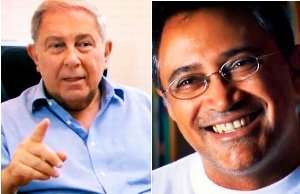
AW:The film is also a celebration of people, who hardly anybody will have even heard of - yet these guys' efforts almost single-handedly saved millions.
DMG: I always say, if Zachee Ahmed or Dr Yusuf Hamid or Peter Mugyenyi were American or English, everyone would know their names. They would be household names, they would have won the Nobel Prize five times over. One of the things I came away with after working almost six years on this film, was that it's just astounding how little people cared. Nobody was interested in helping them, nobody wanted to talk to them in many cases. They were ridiculed, they were laughed at, they were told that they were falsely raising hopes of people about who could get treatment rather than letting them die with dignity. I mean, things like that were said.
AW: You definitely get a sense of latent racism in the background of the West's reaction to the epidemic.
DMG: It's funny. I think when you watch documentaries, especially documentaries made in western countries about the developing world, generally by very well-meaning people, there's a theme that really annoys me, as someone who lives in the developing world, and that is that I find a lot of filmmakers and reporters do something subconsciously that's very destructive. What they do is they always seek out really wretched conditions and portray them as being normal.
For example in India - I live in Bombay - obviously there's massive amounts of poverty but somehow the way it's portrayed in some of these films and reports is they show the worst of the worst, as if it's normalcy in India. The effect of that is an alienating effect for the viewer in the West. It makes it easier to do nothing, it makes it easier to say, "It's too bad people don't have medicine or whatever else they're lacking, but look how they live, in a way they'd be better off dead." I'm not sure people say that out loud but in the background that thought process was going on. So, for me, it was very important in my film to show a lot of beauty. To show that these countries are beautiful places where people live good lives and they care for their families and they go to work and they shop and they live just like you and me. They don't deserve that - there's no reason for things to be like this. That was very important to me and I spent a lot of time working with my director of photography. Also, not to do it in a false way - we didn't want to make things artificially beautiful. We wanted to show the life we were really encountering in these places and the people we met.

Initially we had a lot more stories in the film of HIV positive people it's just because of length and what have you many of them will end up on the DVD in deleted scenes. We really did want to include these stories because otherwise it becomes an academic discussion.
AW: What inspired you to take this gargantuan topic on?
DMG: The film deals with really huge topics that go way beyond anything to do with health and HIV/AIDS. Basically, the film is fundamentally about the structure of commerce in the world and very much about the way that different parts of the world deal with each other and treat each other. There has been, up until now, over a period of the last 500 years, this kind of colonial structure that has more or less remained unchanged. I think now, the sort of underpinnings of that are being shaken - which is a good thing - but the government structures have not yet reacted in time.
The whole patent system/intellectual property is obviously a regulatory system that in many cases is completely outmoded and unresponsive to the needs of world. Particularly in the case of medical technology, including pharmaceuticals, the repercussions are incredibly deadly. Even leaving aside HIV/AIDS which was really the show window example of it that really got some people woken up to the whole issue, just in the other therapies where the need is fairly constant, unbelievable numbers of people die.
AW:There's also the issue - touched on here - of medicines being reformulated for no better effect to 'reboot' maintain a patent for longer than a 20-year period.
DMG: I notice that people in certain Western audiences - say American and the UK - have a degree more faith in their governments than people in India do. In India, people generally think the government is out to harm them or is so corrupt that things go to the highest bidder who comes along. But one of the things I find people really misunderstand about drug patents is that they seem to have a belief that some body - like the Food and Drug Administration in the US that is actually checking to see whether these things have any value and there isn't.

Basically to get a patent on a pharmaceutical, it just has to be better than the placebos. It just has to have some impact, it doesn't have to do anything good. You can even change the degree of the active ingredient so let's say it normally has 20 milligrams of active ingredient, you can make it 100 just to get that bump you need to get a patent, even though you're never going to be selling 100 milligrams. When I tell that to people that they are shocked in most cases, they actually believe that a patent is a seal of approval of being a sign of progress in the history of science. But it totally isn't. Very, very few drug patents should even be granted, to be honest, most of them are not novel. Even beyond that, even the ones that are novel, most of them are not better than what's already out there.
AW: Did the idea for the film start from Africa, or was it something in India that struck you?
DMG: I was working on a film in 2004 in Sri Lanka and I happened to read an article in The Economist about Dr Hamid [the boss of generic drug manufacturer Cipla], who's in our film. I was fascinated by what I was reading and surprised that I didn't know more about this whole thing that was going on. It just so happened that the person I was there with said, 'Oh, if you want to meet him, I'm related to him'. So I was quite surprised but said, for sure I'd love to. I met him and got to know him quite well and through him, I got to know Bill Haddad [a long-time Washington advocate of generics], who is also in the film and who is a real storyteller. He was the one who really put it into context for me as a story. At that point, I still wasn't thinking about making a film, I was just generally curious about why more hadn't been written about it and generally sceptical, checking that the things I was being told were really true, because the scale of it seemed so big that it was shocking to me that I didn't know about it. I started reading all I could and finding things on the net - and to be honest there wasn't a whole lot.
I had another film that I was working really intesively on and I was supposed to do. I woke up one day and said, I have to do this film. I talked to a few friends who make documentaries and tried to interest them in the project. But they were, like, it's a huge project, it's going to be really difficult, you're going to have raise a lot of money. It kind of became clear that nobody was going to do it unless I did it.
The thing was I'd already started speaking to some of the people and it was clear to me that they were already forgetting certain details. And I knew that if I waited another two years, the story would be largely lost or at least the energy of the first-hand accounts.
It's interesting because I was doing interviews with a lot of the people and many of them said, nobobdy's ever asked me about this. They get interviewed about a lot of stuff but generally by news people doing current affairs things on the issues of the day. Even they were saying to me, I really appreciate you doing this and can I have a copy of the transcript of the tape because I myself am forgetting.
AW: You speak to a lot of key people in the film, it must have taken a lot of dedication on your part, was it hard to get them to speak to you?
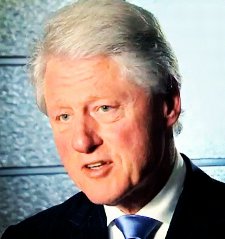
DMG: It was hard to get Bill Clinton. He was the only hard one to get. There's a lot of potential downside for them in talking to people like me. They know it's a controversial topic, they know I'm not part of the mainstream media establishment, I also don't have a string of Oscar nominations - it's not like Charles Ferguson is on the line.
They could say something great or they could say something dumb or be made to look like they said to say something dumb and then it goes round the world.
I felt it was really important to have him in the film and I just kept at it.
Clinton himself was very charming and great and very knowledgable. We give him a very friendly ride in this film. I actually get criticised a lot for that.
It becomes like a sucking quicksand to get into that. Another thing I've been criticised before is that 'you don't call the African government to account' and it's a totally valid criticism but for me, Umbeki and the whole denialist thing is really another film. It's such a big topic. It takes you in another direction.
Our film is very much about there were certain people who could have done something that would have made even Mbeki's denialism irrelvant. There's a lot of things that sprung up in the wake of the lack of drugs and reactions but the fundamental problem was the lack of access to drugs and that comes from monopoly pricing.
AW: What about the importance of India in the film?
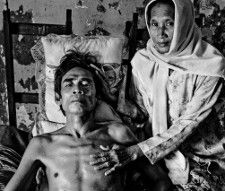
DMG: What is really important to me is that people understand that things don't happen by accident. The whole lineage of solving this problem basically goes back to Mahatma Gandhi. That's not just the inspiration of Mahatma Gandhi on the founding of Cipla and the whole idea of self-reliance in India. The key element of the Gandhian idelogy is self-reliance and not being dependent and not accepting monopolies and all those things. But also civil disobedience in Zackie Ahmed's boycott of anti-retrovirals. He was very conscious of doing this as a Gandhian act. And the [Indian] patent law changing in 1970 was also very much in line with the idea of self-reliance and saying India cannot afford monopolies on medicine and food because there's just too much need in the country. I think no country can afford it but if you look at all the people who live in poverty worlwide, probably about 40 per cent of them live in India. So there's just an immense amount of need.
Of course, all these corporations will say, no India's a rich country, it's a middle income country and, yes, there are probably 50 million or so quite well off people in India, but there's at least 800 or 900 million people who live very poor lives in India and have a lot of hardship to deal with. So, this is the thing - that's bigger than the whole population of Africa.
The other thing that's important in this whole story is that whatever happens in future, India is the key. If India backs down and caves in then the results will be catastrophic and the country is under immense pressure to do that. And it's not just the Americans. I had a press screening just after Sundance and people said: "The American government should be ashamed." Yes, by all means. But it's easy to point the finger at the Americans, the European Union is also playing a very negative role in this. The individual European countries - many of them have Big Pharma concerns.
I think it's important to recognise the context of things. Nothing happens by accident. This film didn't happen by accident, the things that happen in the film didn't happen by accident. And the mood of the response of the audience is very much in line with a lot of anger people feel, if you look at the Occupy movement, if you look at films like Inside Job, that somehow, everything has become subserviant to the interests of these giant corporations for whom there is never enough profit, there is never enough money and nothing matters other than that.
There is nothing important other than them having this huge factory of profit. I think that's something that very few people are onboard with but somehow they're not being asked. The 99% and all that stuff, it might be a little trite but I believe these movements are extremely important. When people see there are more or more blocks in this - we're focused maybe on oil and armaments industry and big finance. But if you look at the pharmaceutical industy and the health insurance industry and the food industry - look at all the stuff that's happening now with the horsemeat and what have you - your food may be poisoned because it's a few per cent cheaper to do it. Who's watching the store? This is a question a lot of people have.
AW: Will you be carrying links to way people can get involved with the debate on your film's website?

DMG: In the UK, we've tied up with around half a dozen NGOs who are campaigning on this issue and we will be going live with their links on the website. All of those NGOs will be joining discussion panels that we have after our screenings as well. So the people who go to the screenings will have the ability to have direct contact with members of those organisations to talk about the work that they're doing now to improve access to medicine.
AW: Now the film is finished, how do you feel about the end result?
DMG: I've gone through all kinds of emotions with this project. There were times when it was really lonely and there was despondency and times when we thought, now we've really nailed it, we've turned a corner. It's really great to bring it out to audiences and get that immediate response from audiences. In a way, it's also a start and I would love to make sure we don't mismanage that anger and emotion. We want to make sure it goes in positive directions. I don't want this film to be the end of the discussion, it should be the beginning of the discussion. That's why I'm happy that we've tied up with a really nice group of organisations that I personally feel are doing really positive work. They're much better equipped than I am to take this discussion forward with people out there. I hope that there will be more films and more press and questions. I do feel this is definitely the most important work I'll do in my life but at the same time I'm also a filmmaker and I have other films I want to make.
Fire In The Blood is out on DVD in the UK now. Buy it from Amazon here
FITB UK Trailer 06 02 13 from Fire in the Blood on Vimeo.





















